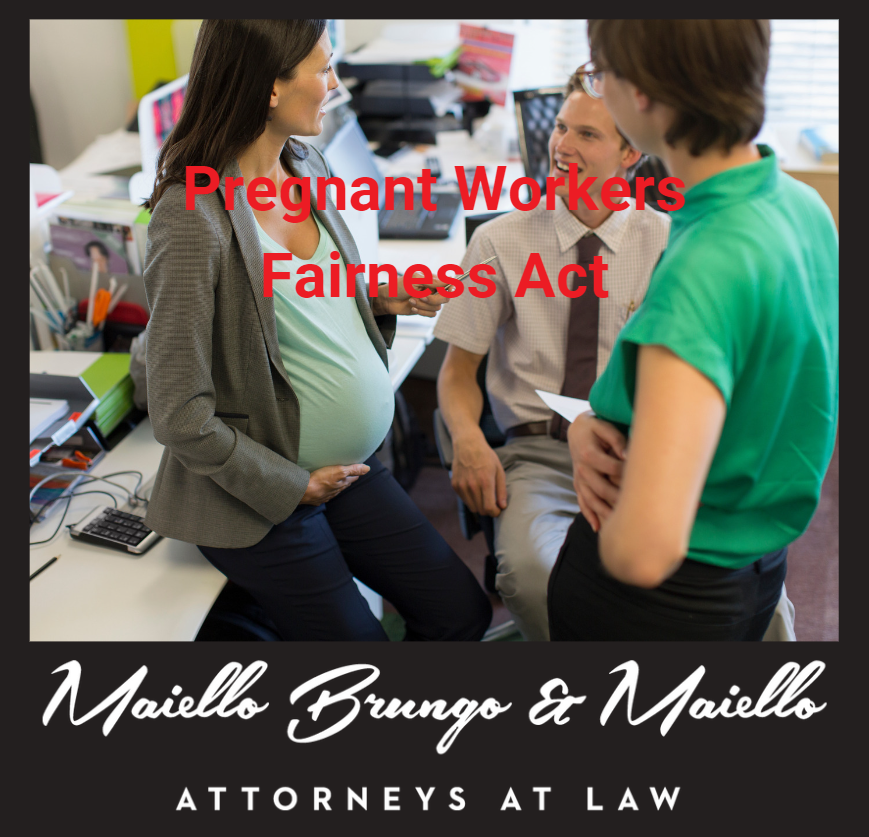The Pregnant Workers Fairness Act (PWFA) went into effect on June 27, 2023 and will impact nearly 2.8 million U.S. pregnant workers and workers that are postpartum. Although the Pregnancy Discrimination Act (PDA) was enacted over 40 years ago, which addressed discrimination based on pregnancy, childbirth or related medical conditions, the PDA did not guarantee reasonable accommodations needed to protect a worker’s health while on the job. Building on the protections under Title VII of the Civil Rights Act, the PWFA gives workers the right to reasonable accommodation, or temporary changes at work, which are medically necessary during or after pregnancy.
Contact MBM’s employment law attorneys to discuss how new regulations affect your business. Our labor and employment lawyers will provide you with legal guidance of your pregnant and postpartum employee questions.
Contact Our Labor and Employment Law Team
PWFA Reasonable Accommodations for Pregnant and Postpartum Workers
Under the PWFA, reasonable accommodations are changes to the work environment or the way things are usually done, and can include:
- Flexible scheduling for prenatal or postnatal appointments
- Additional, longer, or more flexible breaks to drink water, eat, rest, or use the restroom
- Temporary transfer to a less physically demanding job
- Limiting exposure to hazardous materials
- Providing equipment, such as a stool for sitting
- Providing private space for lactation needs
- Allowing a change in dress code to wear maternity clothing
If you are an employer or HR department that has any questions on what constitutes a reasonable accommodation, the experienced employment lawyers of MBM Law can offer legal guidance. Please call for more information: (412) 242.4400
The EEOC and PWFA
The U.S. Equal Employment Opportunity Commission (EEOC) is charged with implementing and enforcing the PWFA. “Covered employers” are required to provide reasonable accommodations to a worker’s known limitations unless the accommodation will cause the employer undue hardship, causing substantial expense or difficulty on business operations. Covered employers include private and public sector employers with at least 15 employees, Congress, Federal agencies, employment agencies, and labor organizations. The PWFA does not replace federal, state, or local laws that are more protective of workers affected by pregnancy, childbirth, or related medical conditions.
Unsure how PWFA affects you? Call the experienced HR Law Team of MBM Law.
Contact Human Resource Management Attorneys
Prohibited PWFA Employer Actions
The PWFA prohibits employers from the following:
- Requiring an employee to accept an accommodation without a discussion about the accommodation between the worker and the employer;
- Denying a job or other employment opportunities to a qualified employee or applicant based on the person’s need for a reasonable accommodation;
- Requiring an employee to take leave if another reasonable accommodation can be provided that would let the employee keep working;
- Retaliating against an individual for reporting or opposing unlawful discrimination under the PWFA or participating in a PWFA proceeding; or
- Interfering with any individual’s rights under the PWFA.
The EEOC will not accept charges under the PWFA for incidents prior to June 27, 2023. For these requests, individuals must seek accommodations under Title VII of the Civil Rights Act of 1964 or the Americans with Disabilities Act (ADA).
Questions? Consult a PWFA Lawyer
If you have any questions about the PWFA, EEOC, ADA or Title VII, contact the experienced legal team at Maiello Brungo & Maiello.


